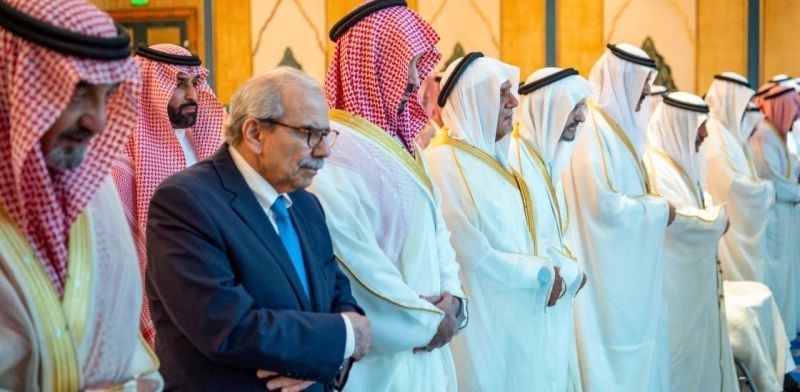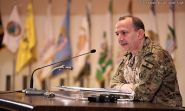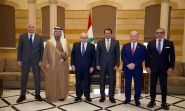
The lavish reception for Nawaf Salam during his recent visit to Saudi Arabia has raised many questions. This high-profile welcome, marked by exceptional hospitality, is more than a simple protocol gesture and reflects significant political stakes. To shed light on the real motives behind this meeting, This is Beirut spoke with political analyst Ali Hamadeh, a leading expert on Middle Eastern affairs.
Saudi Interests
According to Hamadeh, Saudi Arabia's main priority is to “preserve the unity of Lebanon’s government and its new ruling class, namely the president and prime minister.” This aligns with a broader strategy to “steer Lebanon out of its political, security and economic crisis.” However, the kingdom is setting clear limits on its role, making it clear that “playing Santa Claus” is “out of the question,” as the analyst puts it.
For Lebanon, weakened by years of political and economic instability, Saudi Arabia’s renewed engagement presents a crucial opportunity. “Lebanon has every interest in engaging with such overtures,” Hamadeh notes. Riyadh serves as the “primary gateway” to the Arab world and the dominant Arab power in Lebanese affairs. This position gives the kingdom considerable leverage: if Saudi Arabia remains disengaged, the rest of the Gulf Cooperation Council is expected to do the same.
The regional stakes of this diplomatic initiative should not be overlooked. Hamadeh explains that “Saudi Arabia has a vested interest in stabilizing Syria” and that by “promoting stability in both Syria and Lebanon,” it seeks to “facilitate a rapprochement between the two countries.” This mediation effort was reflected in the recent meeting between the Lebanese and Syrian defense ministers in Jeddah. This significant step highlights Riyadh’s ambition to assert itself as a key player in reshaping Syrian-Lebanese relations.
The Unity of Lebanon’s Executive Authority
The invitation extended to Nawaf Salam has fueled speculation about a possible Saudi attempt to align him with President Joseph Aoun's camp. However, Hamadeh offers a more nuanced view. “No. It is not necessarily about positioning Nawaf Salam in the president’s camp,” he clarifies. “Rather, it’s about doing everything to preserve unity, ensure smooth cooperation and safeguard the new balance in Lebanon.” This “new balance,” as the expert emphasizes, is defined by its sovereignist orientation. Therefore, the key issue is to “prevent the executive authority from imploding in the coming weeks if this clash is not contained.”
Rather than interpreting this invitation as targeted pressure on Nawaf Salam, as some analyses suggest, Hamadeh argues that it is “pressure on the entire Lebanese executive authority.” The primary message Saudi Arabia seeks to convey is one of “unity,” aimed at reinforcing “the unity of Lebanon’s executive authority.” This effort is directed at “all the key political players,” with Riyadh clearly signaling that “the presidency of the Council is under the aegis, or protection, of Saudi Arabia.” The expert describes this message as “very important,” in line with a well-established political tradition.
The main goal of this diplomatic maneuver is to maintain “a balance and preserve that balance between President Aoun and Prime Minister Salam.” According to Hamadeh, Saudi Arabia is convinced that this institutional harmony “must happen,” that it “is far from impossible” and is “the most natural outcome.”
The potential consequences of a failed Saudi mediation could have serious implications for Lebanon’s balance of power. Hamadeh is clear in his assessment, “Any conflict between the president of the republic and the prime minister would benefit Hezbollah, the Shiite duo of Amal-Hezbollah and all the parties feeling sidelined by the new political and geopolitical dynamics in Lebanon.” In this context, institutional stability is of paramount strategic importance, and all parties “have a vested interest in restoring order.”
Ultimately, the welcome extended to Nawaf Salam transcends simple diplomatic protocol and is a symbol of the influence Saudi Arabia aims to wield in the region. As political dynamics continue to grow more complex, this invitation could be a key moment in ushering in a new era of dialogue between Lebanon and its Arab neighbors, with Riyadh closely monitoring the developments. The question remains: Will this diplomatic maneuver succeed in restoring the much-needed harmony within the Lebanese government, or will it merely be a brief interlude in an unfinished political narrative?




Comments